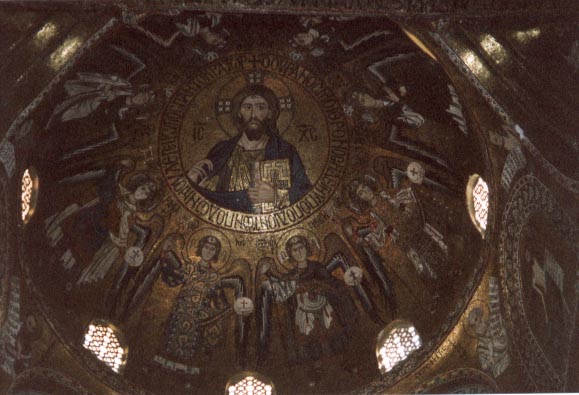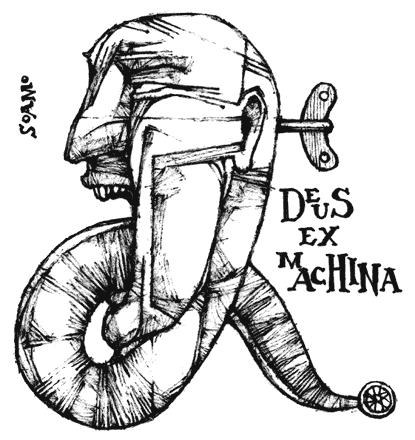Serendip is an independent site partnering with faculty at multiple colleges and universities around the world. Happy exploring!
Notes Towards Day 16 (Thurs, Mar. 15): An Easter story?

meowwalex and bluebox, "setting the scene with If I Were a Boy and Your Revolution
I. coursekeeping
a list of sign-ups for "setting the scene"
now up on course homepage--
Tuesday: pejordan
(hwink, mbeale--need to get you on this sheet)
signing in/don't forget re: posting Sunday night,
finishing Middlesex for Tuesday's class...
update re: book ordering/reserving:
The publisher has 6 copies of the Ware to send us (which will arrive within the week),
and is backordering 2 additional copies. Those two will arrive the first week of April.
II. what did we learn from Jack Halberstam's
talk about "Gaga Feminism"?
“gaga” a kid word: what you say when you don’t have the words -->
reach back to our gaga childhoods, and
build on that past for a future where anarchism is @ work
"subversive intellectuals"/"low theory"/replacing action/
"demand-orientated politics of the mainstream" with
performance/display: "we don’t want, we’re just here”
if we "make a shift in the fabric of the real,"
something else will become possible--
we just don’t know yet what it will be...
connect/find each other, but
not in simple identitarian communities
young people reject feminism, because it is
identified w/ people they don’t identify with...
look for fragments of feminism in different places,
rather than "wheeling out" Gloria Steinem…
II. Turning back to Middlesex, Books 1-3,
beginning (again) by telling each other the stories
of the first time we realized we were gendered.
What can we learn from these accounts?
Were these events biological or social?
(What's the difference? During the Larry Summers' controversy
10 years ago, the infamous biologist Evelyn Fox Keller said,
"why there should be so much enthusiasm for the idea"
that people are born, not made... there is "nothing special"
about birth as a line of demarcation in development, since
even in the womb environment affects how genes are expressed.
"When we talk about innate and acquired it is rarely clear where
to draw the line...and where to draw the line is rarely stable."
(Cornelia Dean, "Evelyn Fox Keller: Scientist at Work.
Theorist Draw Into Debate 'That Will Not Go Away.'"
The New York Times April 12, 2005. F2.)
In our experiences, what are the marks of gender?
What are the mechanics of being gendered?
How are they enforced?
What are the marks of gender in Middlesex?
When/where/how does gender enter the Stephanides family?
Two spheres with separate concerns, duties, even--
the evolutionary biologist might say--thought patterns." (p. 92)
(Prior to Cal's evolution) what complicates this binary/
refuses this categorization?
95: What does it mean to be human in the world of this novel?
"Historical fact: people stopped being human in 1913...we've all
inherited it to some degree, so that we plug right into joysticks
and remotes, to repetitive motions of a hundred kinds. But in
1922 it was still a new thing to be a machine."
98: "'Don't try to be a speed king. you understand?
we all have to work faster that way.'"
(cf. Middlemarch re: "marching in the middle"/fitting in)
106: What do we make of Cal's a-political position?
"I happen not to be a political person. I don't like groups....
I live my own life and nurse my own wounds.
It's not the best way to live. But it's the way I am."
Does Cal see it that way?
(Is writing an "action"?)
on white paper bear the greatest significance, that if
I keep writing I might be able to catch the rainbow
of consciousness in a jar" (297).
Let's listen in on the important debate between
Father Mike and Milt about the value of storytelling:
understand who we are, where we come from. Stories are
everything. And what story does the church have to tell?...
It's the greatest story every told."
"...in the old country people ..'ll believe whatever stories
the priests tell them. Here it's different. You can go to
college and learn to think for yourself."
"The church doesn't want people not to think....thinking
will take a person only so far. Where thinking ends,
revelation begins."
"I'd say where thinking ends, stupidity begins."
My mother...couldn't fail to notice the stark contrasts....
On one side, faith; on the other, skepticism (179).
Another back-story/ frame-story for Middlesex,
perhaps even more important than that of Tiresias,
is a religious story.
I first noticed an "Easter theme" in the novel when
Milt interrupts his Easter egg-cracking ritual
("Time out. That's my egg. Nobody touch it until I come back"--p. 16)
to inseminate Tessie.

Was it told to you, growing up?
How was it told to you?
How do you now tell it/understand it.
I want to suggest that this story, of continuous re-birth, is Cal's story--
and with it, to suggest that literary stories may differ from scientific ones,
in that the new do not replace (though they may alter and update) the old.
We acknowledge our historical roots, in a way that science's stories,
with their emphasis on replaceability, do not.
(And where are the social scientists on this spectrum?)
Back to the archetype....
"The cultural evolution of his story began w/ the blind Greek prophet
Tiresias who was given second sight. Tiresias is (among other things)
a prototype for Chris.
"And I Tiresias have foresuffered all/
Enacted on this same divan or bed"
(T.S. Eliot, The Wasteland, ll. 243-244).
When you travel like I did, vague about destination and
with an open-ended itinerary, a holy-seeming openness
takes over your character. It's the reason the first
philosophers were peripatetic. Christ, too" (488-489).
Christ is "open" and "peripatetic." He is also all-seeing:

From Travel in Sicily
In his 3 a.m. interview about the novel, Eugenides was asked,
"If you would pick an image that reflects the spirit of Middlesex,
what would it be?"
the only...visual artifact that I had to the book was actually the interior
of a Greek Orthodox Church. They are very gaudy in many respects,
iconography on all of the walls. There's a lot of activity in the same
way there's a lot of activity in Middlesex and in all of the characters.
There are very bright spots and there's also many dark spots where
you have the lamps swinging, smoking and a litany of pray....
There usually is also a dome, and across the dome you'll find the
Christ Pantocrator, who's transcendent, looking down on the
partisans and on creation. In a way, I think my narrator as a
Christ Pantocrator. So, the idea of something very colorful
and swirling with light, with a dominant intelligence screening
over, was the image that I had in my mind....
From Le christ Pantocrator
From Travel Guide to Turkey
What does it do to the story, if you read it as an Easter story?
Remember the moment when Milt receives his reprieve as a signalman?
He was to report to the Naval Academy at Annapolis.
On the admissions test, Milton had scored a ninety-eight.
Every Greek drama needs a deus ex machina (196).
Is this a deus ex machina, or did he engineer it himself?
Maybe the two differ only in the distance from which we view them?
From Soamo Gallery


